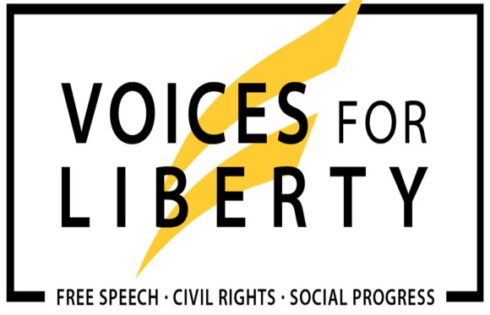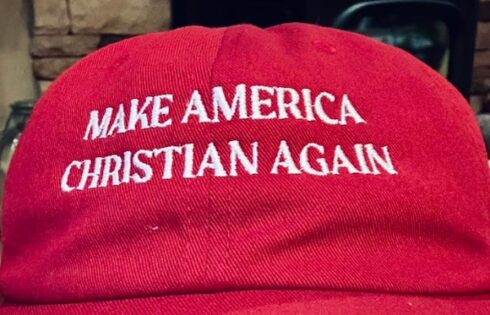 Revelations about the veracity of Greg Mortenson’s celebrated memoir, Three Cups of Tea, have put universities that assigned the book in an uncomfortable position.
Revelations about the veracity of Greg Mortenson’s celebrated memoir, Three Cups of Tea, have put universities that assigned the book in an uncomfortable position.
At least ten universities required entering students to read Three Cups of Tea in the last few years, but none have plans to discuss the book’s inaccuracies with those students.
An account of Mortenson’s adventures and humanitarian efforts in the Middle East, Three Cups of Tea was published in 2006 to widespread acclaim. Since then, it has become a favorite of undergraduate reading programs.
But according to an April 17 segment on CBS’s 60 Minutes, Mortenson fabricated some of the book’s most gripping moments—including his alleged capture by the Taliban in 1996.
Three Cups of Tea was assigned to all incoming freshmen at Mississippi State University in 2010. Linda Morse, chair of the First-Year Reading Experience at MSU, would not say whether she believed students had been assigned a fraudulent book. But she did speak highly of the events and discussions that sprung from using the book in MSU’s reading program.
“We had our local rabhi, we had a minister, and we had someone from the local mosque speak about what fasting means,” she said. “We used the themes in the book to help explore cultural themes that our students may not have been exposed to.”
One of the events featured Mortenson himself. Morse held a positive view of his visit, even in light of the recent controversy.
“I found him to be a passionate speaker and a very humble man,” Morse said. “I think our students were exposed to someone who had a very important message to talk about with them.”
Mortenson was also a guest of Southern Utah University, where he gave a lecture, signed books, and met with students and administrators. Bradley Cook, vice president for academic affairs, wrote that Three Cups of Tea had been a worthwhile choice for the summer reading program, no matter what critics said about the book.
Jordan Reese, director of media relations at Lehigh University—which used Three Cups of Tea in its summer reading program last year—said that the decision to discuss the controversy would be left up to individual professors.
“Instructors can raise the issues of honesty in their classes, if they wish,” he said.
Two other universities that assigned the book, Adams State College and Keuka College, also said that no statement would be made to students regarding claims of inaccuracy. The University of Pittsburgh at Johnstown declined to comment.
Three Cups of Tea isn’t the only famous non-fiction book to be accused of fraud lately. Just a few weeks ago, print journalist Bill Steigerwald wrote an article for Reason that meticulously documented frequent and egregious errors in John Steinbeck’s supposedly non-fictional travelogue, Travels with Charley. Steigerwald, who first discovered the inaccuracies while trying to reproduce the travel route from the book, was surprised—and eventually, upset—at the hostile reaction his findings received from scholars of Steinbeck.
One such scholar, Susan Shillinglaw of San Jose State University, was quoted in a New York Times article asking, with regard to the fabrications, “Does it really matter that much?”
The comment earned her a rebuke from a subsequent editorial in the Times that concurred with Steigerwald’s reporting. “It is irritating that some Steinbeck scholars seem not to care,” the article declared.
This indifference also riled Steigerwald, who believes that scholars are willing to ignore the shortcomings of Travels With Charley in part because they agree with the book’s politically liberal message.
“Scholars for 50 years not only didn’t notice this, which I think is absurd, but when they find out, they don’t care,” he said. “They try to excuse it and justify it, and say, ‘Well, it doesn’t really matter.’ ”
Some would contend that academics have reacted to the Three Cups of Tea controversy in much the same fashion. Ashley Thorne, director of communications for the National Association of Scholars, said that if 60 Minutes’ findings are true, the book is the wrong one to introduce incoming students to college-level writing—no matter how favorable its political message may be.
“If that’s the case, it’s really disappointing that [Mortenson] would have these falsehoods in his book and that students would be reading something that’s not the truth,” she said.
NAS, which maintains a database of the books chosen in university reading programs, concluded that administrators typically assign modern books that advance a liberal or politically correct agenda. This dearth of historically-significant books in the reading programs is disappointing to Thorne and NAS.
“This is a great opportunity for them to have really quality literature, something that stood the test of time, that’s a classic,” she said. “With modern authors, you don’t have that as much.”
Three Cups of Tea, then, represents the kind of literature that university reading programs desire—while also serving as a powerful reminder of what can go wrong when universities make the message more important than the method.
“Truth doesn’t matter as much as just getting the attitude ingrained in students by having them read this book,” Thorne said.
For Steigerwald, both students and scholars would be better served by applying some skepticism to the things they read.
“We should be on our guard, especially when you’re doing a book where you like everything you hear and see,” Steigerwald said. “The more you agree with it, the more it should raise the question in your mind, ‘Is it believable?’ ”




Please join the conversation about our stories on Facebook, Twitter, Instagram, Reddit, MeWe, Rumble, Gab, Minds and Gettr.